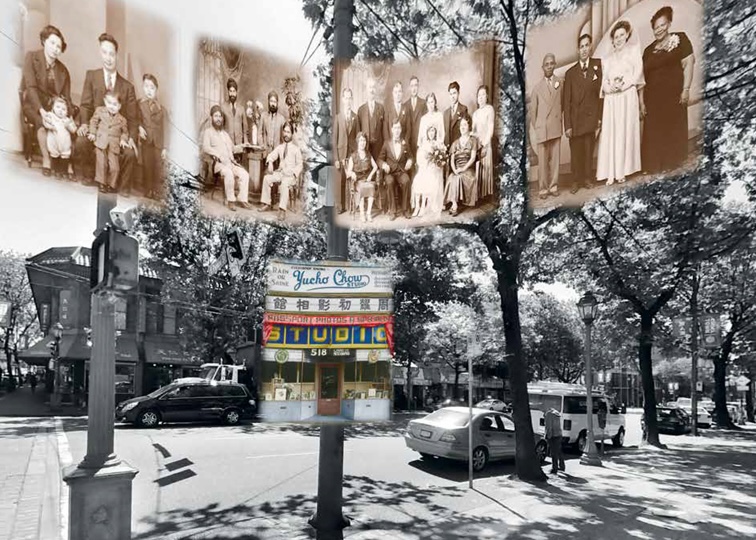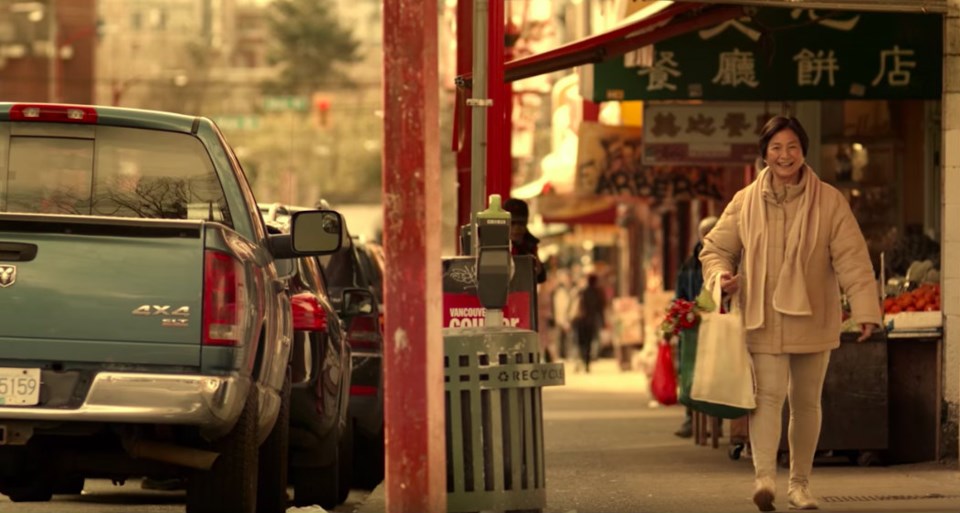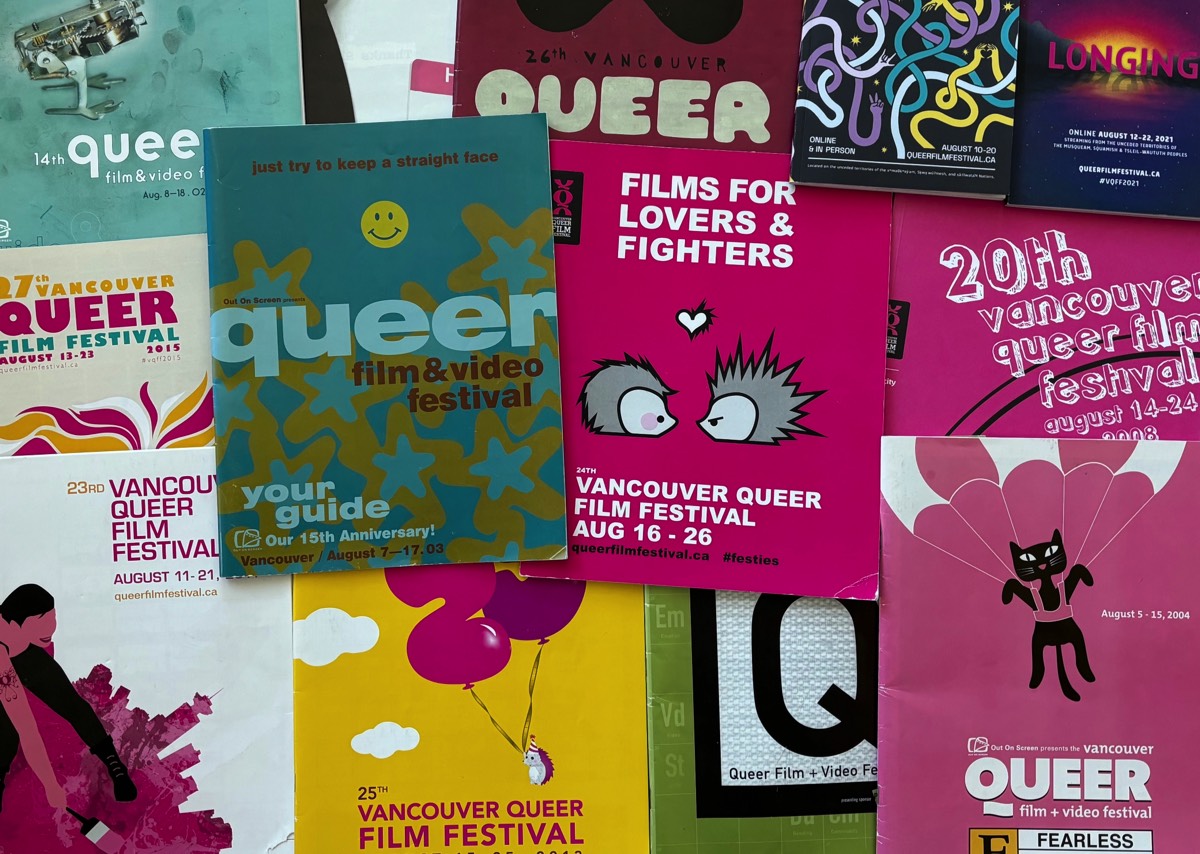CURRENT PROJECTS
Vancouver: A Transpacific Film City
As “Hollywood North,” Vancouver is known for being a minor filmmaking city whose success has relied on the service it provides for the dominant industry of Hollywood. More recently, there are increasing efforts in the city to also cultivate a closer collaborative relation with rapidly rising film industries in East and Southeast Asia. This project examines how these efforts leverage the city's peripheral position and Asian migrant ties to innovate transnational collaborations across the Pacific. The project will map and analyze recent transpacific screen media initiatives in Vancouver. Through close-up case studies of Vancouver-based screen media initiatives that traverse this emergent network, the project will map these practices as part of a new transpacific film geography. The project addresses a central challenge faced by minor film cultures in their push towards transnationalization: how to balance between the preservation of local character with the aspiration for global relevance. The project is funded by a SSHRC Insight Grant.
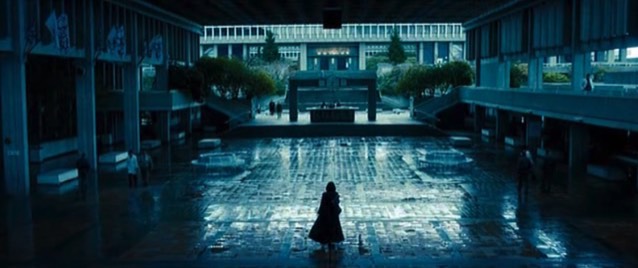
SFU’s Convocation Mall plays the villainous role of the bio-tech company Antigen in the Underworld series. What roles do we want to see our campus play on screen?

Vancouver plays Seattle in the sleeper hit from China, Finding Mr. Right, with location service provided by local production company Holiday Pictures/Maple Ridge Films.
Featured Articles
In Their Riotous Tracks:
Screen Media & Placemaking in Vancouver’s Chinatown
In this article, I examine the impact of screen media and digital technology on creative placemaking efforts in Vancouver’s Chinatown. I review interdisciplinary research on placemaking as relational, networked practices that navigate conflicts and aspire towards social inclusion while operating in an urban context where diverse populations are engaged in daily interactions that cross ethnic and linguistic boundaries. A discussion of the placemaking initiatives of the collective Youth Collaborative for Chinatown (YCC) illustrates the ethos of grassroots placemaking practices in Vancouver’s Chinatown and the way they intervene into competing discourses of heritage, multiculturalism, and gentrification. The main case study analyzes 360 Riot Walk, a historical walking tour in Vancouver’s Chinatown designed by media artist Henry Tsang, focusing on the project’s use of screen media and digital technology to provoke experiences of discomfort and unbelonging. The conclusion reflects on the importance of feeling “out of place” in placemaking efforts that engage with traumatic histories.
Screen Media & Placemaking in Vancouver’s Chinatown
In this article, I examine the impact of screen media and digital technology on creative placemaking efforts in Vancouver’s Chinatown. I review interdisciplinary research on placemaking as relational, networked practices that navigate conflicts and aspire towards social inclusion while operating in an urban context where diverse populations are engaged in daily interactions that cross ethnic and linguistic boundaries. A discussion of the placemaking initiatives of the collective Youth Collaborative for Chinatown (YCC) illustrates the ethos of grassroots placemaking practices in Vancouver’s Chinatown and the way they intervene into competing discourses of heritage, multiculturalism, and gentrification. The main case study analyzes 360 Riot Walk, a historical walking tour in Vancouver’s Chinatown designed by media artist Henry Tsang, focusing on the project’s use of screen media and digital technology to provoke experiences of discomfort and unbelonging. The conclusion reflects on the importance of feeling “out of place” in placemaking efforts that engage with traumatic histories.
Love in Pacific Time:
Asian Screen Culture in VancouverIn this article, I examine a West Coast Asian screen culture that has survived and thrived in the complex dynamics of Vancouver, a filmmaking city on the Pacific Coast that is intimately connected to both Hollywood and East Asia through relative geographical proximity and migration history. I map the history and characteristics of this independent film scene: its commitment to place-specific aesthetics, ongoing experimentation with hybrid styles, multidisciplinary and collaborative approach to filmmaking, and spotlights on women and queer filmmakers. I argue that a vibrant and diverse screen culture can flourish in the margins of a city’s dominant film culture.
Asian Screen Culture in VancouverIn this article, I examine a West Coast Asian screen culture that has survived and thrived in the complex dynamics of Vancouver, a filmmaking city on the Pacific Coast that is intimately connected to both Hollywood and East Asia through relative geographical proximity and migration history. I map the history and characteristics of this independent film scene: its commitment to place-specific aesthetics, ongoing experimentation with hybrid styles, multidisciplinary and collaborative approach to filmmaking, and spotlights on women and queer filmmakers. I argue that a vibrant and diverse screen culture can flourish in the margins of a city’s dominant film culture.
Through Queer Screens
Building on my previous work on queer cinema, I continue to explore new angles on queer screen culture, with an emphasis on its worldly character and relation to place, community, and transnational circulation.
Featured Articles
Routed Through Vancouver:
The Global/Local Art of Queer Film Festival Programming
In this article, I document and analyze the programming practice of the Vancouver Queer Film Festival, specifically its focus on youth, Asia, and Indigenous voices, during the last two decades. The case study examines how a queer film festival negotiates participation in a global queer film circuit with its simultaneous commitment to local communities and histories. I explore how the festival environment fosters conditions for queer cinema to create place-specific meanings along the routes it travels in the world. I conclude with questions about the challenges and possibilities place-based queer film festivals face in the post-pandemic future.
The Global/Local Art of Queer Film Festival Programming
In this article, I document and analyze the programming practice of the Vancouver Queer Film Festival, specifically its focus on youth, Asia, and Indigenous voices, during the last two decades. The case study examines how a queer film festival negotiates participation in a global queer film circuit with its simultaneous commitment to local communities and histories. I explore how the festival environment fosters conditions for queer cinema to create place-specific meanings along the routes it travels in the world. I conclude with questions about the challenges and possibilities place-based queer film festivals face in the post-pandemic future.
Always in Translation:
Trans Cinema Across LanguagesIn this article, I examine the role of audiovisual translation in the cinematic circulation of trans knowledge. Through a case study of the Cantonese-dubbed version of the Thai-language film The Iron Ladies in Hong Kong, I analyze a regional production of trans meanings that negotiates between local subjectivities and globalized categories. The article also demonstrates the importance of a multilingual approach to the study of trans cinema.
Trans Cinema Across LanguagesIn this article, I examine the role of audiovisual translation in the cinematic circulation of trans knowledge. Through a case study of the Cantonese-dubbed version of the Thai-language film The Iron Ladies in Hong Kong, I analyze a regional production of trans meanings that negotiates between local subjectivities and globalized categories. The article also demonstrates the importance of a multilingual approach to the study of trans cinema.

Lotus Roots & Other Queer Memories
Inspired by Richard Fung’s Re:Orientations, this project highlights stories from different generations of queer Asian cultural activism in Vancouver since the 1990s. While current queer media projects explicitly acknowledges a queer lineage from established queer Asian artists such as Paul Wong and Laiwan, other more ephemeral moments from the pre-digital age of cultural activism such as burlesque and drag shows, zine-making, poetry reading, and larger cultural festivals such as three iterations of Lotus Roots have remained largely undocumented. Drawing from conversations with those involved in those projects, this oral documentary project reflects on the continuities, disjunctures, tension, and solidarity of these generational memories. It hopes to bring out the distinctive milieu of Vancouver’s queer Asian cultural scene, its transpacific echoes, and its fragmented but ongoing linkages to queer elsewheres.
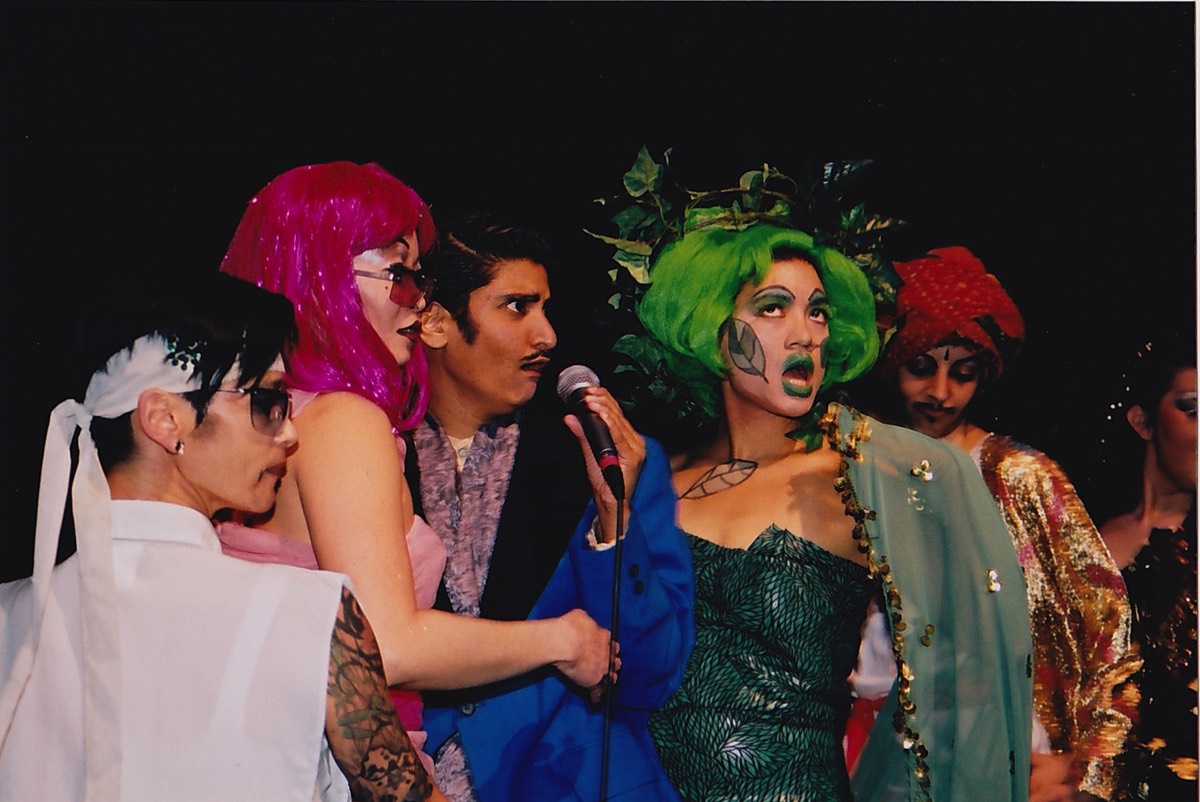
Jimmy Susheel, (Centre) with The Draggin’ Angels and the Brown Brothers Posse at Vancouver’s Lotus Roots 2002.
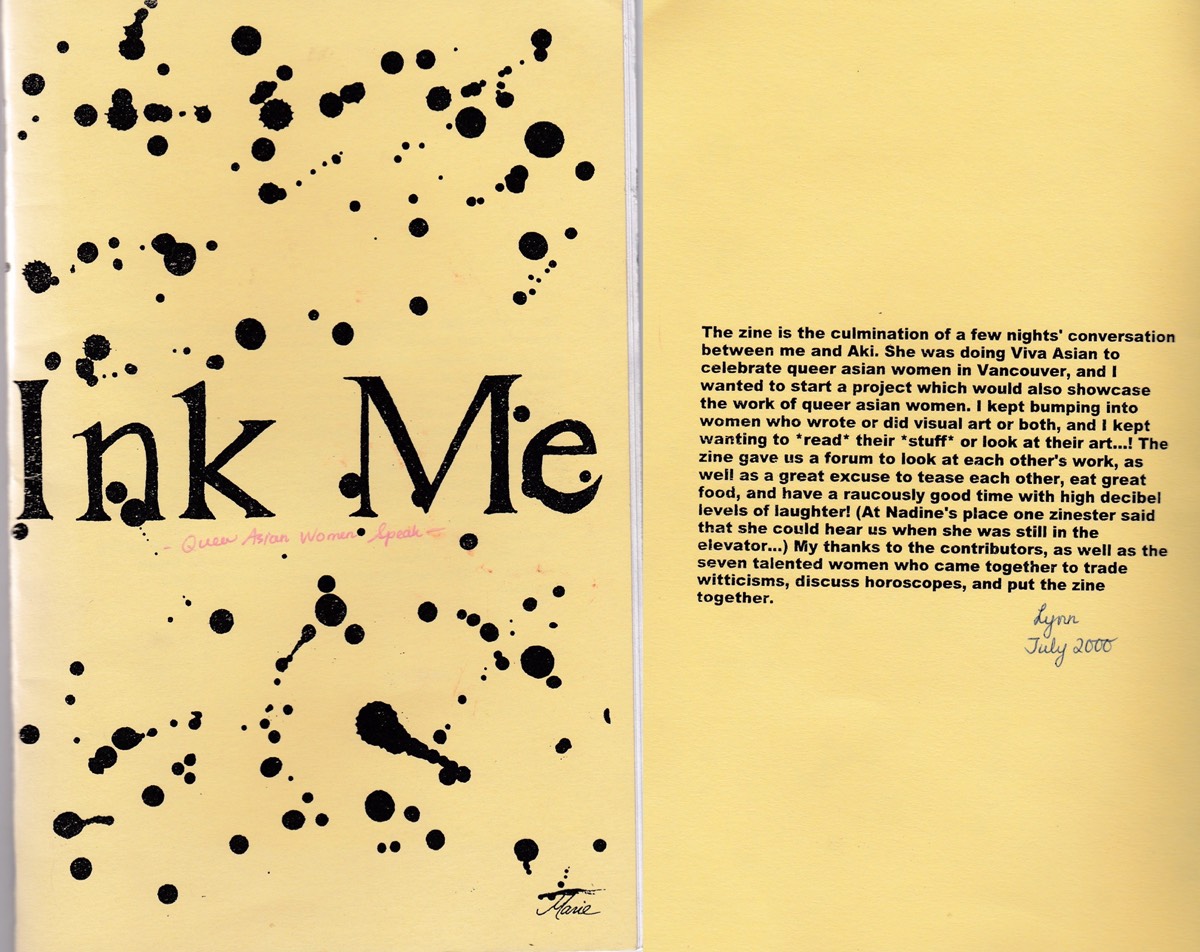
Ink Me: Queer Asian Women Speak: a ’zine published in Vancouver, 2000
Featured Articles
Multiple Queer Asias: An Intimate Reflection from Vancouver
In this article, I offer an intimate reflection on the multiple ways in which I have embodied and thought “queer Asia” from my location in Vancouver.
In this article, I offer an intimate reflection on the multiple ways in which I have embodied and thought “queer Asia” from my location in Vancouver.
Richard Fung’s Re:Orientations in Vancouver
A roundtable conversation with Richard Fung on the occasion of a screening of Re:Orientations in Vancouver. We reflect on how the film resonates for the multiple communities it speaks to, including queer activists, youth, migrant populations, and other diasporas.
A roundtable conversation with Richard Fung on the occasion of a screening of Re:Orientations in Vancouver. We reflect on how the film resonates for the multiple communities it speaks to, including queer activists, youth, migrant populations, and other diasporas.

